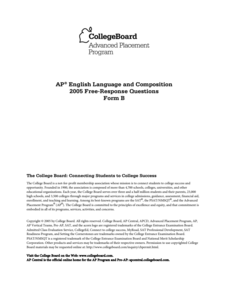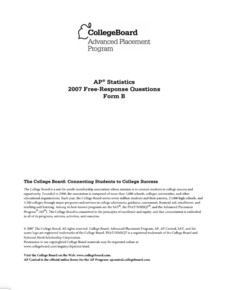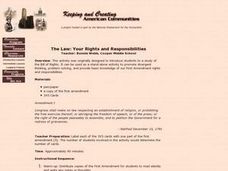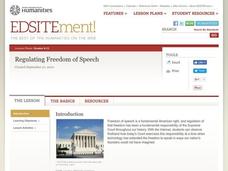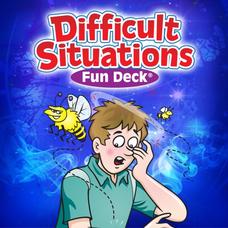College Board
Teaching Students How to Write AP Statistics Exam Responses
But this is math—we don't need to know how to write! The article makes a point that class members in AP® Statistics should be comfortable writing as the exams require it. Individuals quickly realize that quality writing is crucial to a...
Read Works
Plymouth Colony
Read about the tumultuous beginning to the United States with an informational text passage about Colonial America. As young researchers peruse an article about the arrival of the Mayflower, the settlers' relationship to the neighboring...
Civil War Trust
Civil War Personalities Lesson Plan
Caring, trustworthiness, and responsibility—these are only a few character traits in focus of a lesson based on stories from the Civil War era. Class members explore several influential lives while reading biographies that highlight...
College Board
2014 AP® English Language and Composition Free-Response Questions
For some students, college may not be worth the cost. Free-response questions from the 2014 AP® English Language and Composition exam cover a variety of topics, including the value of a college education. Writers review six sources to...
College Board
2011 AP® English Language and Composition Free-Response Questions Form B
Strong writers support their points with direct evidence and details. A series of free-response questions from the 2011 AP® English Language and Composition exam require the use of details to obtain a good score. The first prompt...
College Board
2005 AP® English Language and Composition Free-Response Questions Form B
Communication is the key. Prompts from the 2005 AP® English Language and Composition Free-Response Questions Form B allows scholars two opportunities to analyze the use of communication to express thoughts. First, pupils look at...
Judicial Learning Center
Your 1st Amendment Rights
Why should classes care about the First Amendment? An engaging lesson serves as a powerful tool for answering just that. As all four cases in the lesson relate directly to freedom of expression in schools, young scholars explore the...
College Board
2007 AP® Statistics Free-Response Questions Form B
So that is how they do it! Pupils and teachers see how College Board assesses topics using the free-response questions from Form B of the 2007 AP® Statistics test. The six questions are divided in two sections, the first five being more...
College Board
2014 AP® Psychology Free-Response Questions
A college undergrad has a lackluster first year. Why? A structured prompt from the College Board asks learners to explore various psychological dynamics and how they can affect a young man's freshman experience. A second question asks...
College Board
2011 AP® Psychology Free-Response Questions
A student is taking her first exam in Japanese. What are some factors that could affect her success? Learners consider the question, as well as examine a study on vision and feedback using authentic College Board materials.
Curated OER
The Law: Your Rights and Responsibilities
Learners explore First Amendment rights and responsibilities.
Curated OER
Perseverance and the First Amendment
Students investigate the right to petition and assemble. In this Bill of Rights lesson plan, students read the First Amendment and discuss the rights guaranteed by the amendment. Students research selected groups and movements that have...
Curated OER
The First Ladies
High schoolers compare two First Ladies. In this American history lesson, students read speeches given by Barbara Bush and Hillary Rodham Clinton. High schoolers respond to questions about the speeches.
Curated OER
Regulating Freedom of Speech
Students examine the nature and limits of the Constitutional right to freedom of speech. They read and analyze the First Amendment, discuss various case studies, and research and record their own opinion on discussion questions.
Curated OER
4-H Nutrition/Health/Fitness- Intermediate Leader's Page
Have some fun with healthy living in 4-H! Through several activities, young members learn about healthy eating, basic first aid, and fun exercise options. Of course, service ideas are outlined to extend learning. Students use websites to...
Humanities Texas
Primary Source Worksheet: Franklin D. Roosevelt, First Inaugural Address
Young historians will learn not to fear primary source materials (or fear itself, for that matter) thanks to this resource that uses Franklin D. Roosevelt's March 4, 1933 Inaugural Address to model how to conduct a close reading of such...
New York State Education Department
Comprehensive English Examination: June 2015
Heroes rise from adversity. That theme forms the focus of the critical lens essay in a sample comprehensive English examination. The exam, which is part of a larger series of sample standardized tests, also includes two short response...
Free Printable Behavior Charts
How Do I Respond?
Help your learners respond to feelings of anger appropriately by working with them to brainstorm fitting responses to stressful situations. This organizer includes a list of anger-causing situations paired with images, a column for an...
Super Duper Publications
Difficult Situations Fun Deck
What would you do? Fifty-six illustrated picture flash cards provide players with an opportunity to talk about difficult situations, practice responses to awkward or uncomfortable situations, and consider how to deal with dangerous...
Equality and Human Rights Commission
Learning area 5: Job Done!
Four activities conclude a unit through discussion and activities inspired by reflection. Scholars revisit their storybook from the first unit. Self-portraits showcase thought bubbles with written statements. Groups write and perform a...
Judicial Learning Center
Do You Know Your Bill of Rights?
The Bill of Rights is much more than an important piece of paper! The rights cover everything from freedom of speech to the right to remain silent if arrested. Scholars find out their own rights by answering the questions in the form of...
Facing History and Ourselves
Closing Challenge
The future can be yours to see with a bit of planning. That's the takeaway from a routine that asks participants to first brainstorm a list of personal and academic goals. Individuals then select one to focus on for the week, identify...
Facing History and Ourselves
Frame a Special Item
If you could frame something important to you, what would it be, where would you hang it, and why would you choose this particular thing to frame? These questions launch a lesson designed to help class members get to know each other....
Curated OER
Rights and Responsibility
Students identify the shortcomings of the Articles of Confederation and explain how these shortcomings lead to the creation of the Constitution. They explain why the Bill of Rights was added to the constitution and identify six freedoms...







